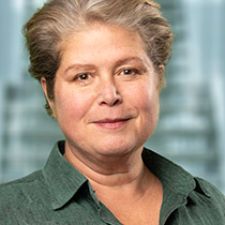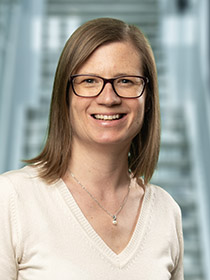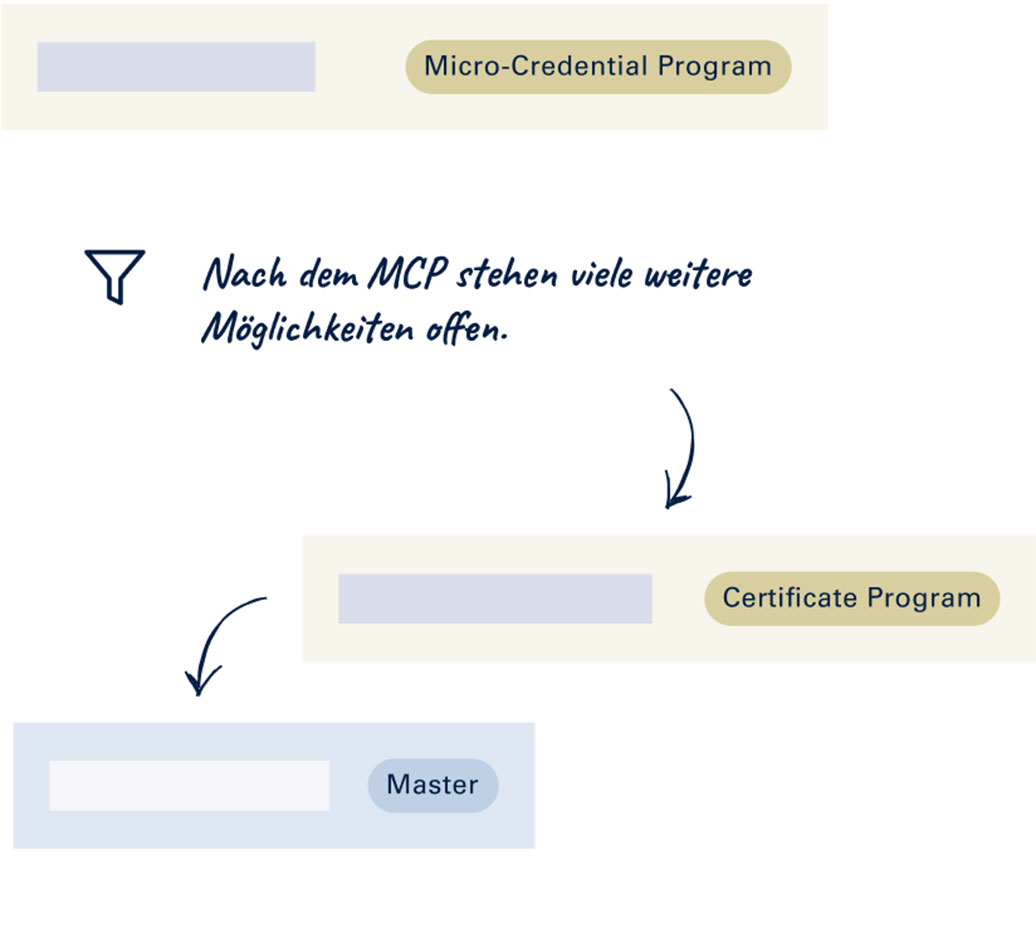-
Graduation
Certificate
-
ECTS-Points
6
-
Learning format
-
Duration
1 week, part time
-
Costs
proportional to curriculum price
-
Language
German or English
-


Our program covers the latest developments in crossmedia exhibition development.
Wendy Coones
Course Director – Department for Arts and Cultural Studies
Questions?
We are here to help

Verena Wagner
Organisational Assistent
Or contact us directly
Benefit from our program
- Low-residency: by holding 4-day blocks, micro-credentials can be more easily integrated into everyday working life
- Small groups: Group sizes of max. 20 people make it possible to respond to the needs of the individual participants. Team building and networking are very important to us.
- Specialization: we offer micro-credentials in a wide range of subject areas in the arts & cultural studies. You benefit from renowned lecturers with many years of experience
-
for working professionals
-
small class sizes
-
specializations
Stackable Program
In combination with other continuing education programs, Stackable Programs can be combined to achieve an academic degree.


The Stackable Program offers me complete flexibility in the design of my studies.
Tatjana Kohl
Student
Content
- Analyze selected media theories and practices and current strategies of crossmedia knowledge transfer in the context of exhibitions.
- Identify challenges in the development of different forms of media presentation for contemporary audiences.
- Distinguish different types of interpretation and exhibitions - scientific / artistic / commercial exhibitions.
- Develop applications that integrate convergent media methods.
Microcredential - 6 ECTS
Media Theories and Convergence Mechanisms in the Digital Age - Application & Integration of Convergent Media Methods
Media Convergence in the Digital Age
In this module, students investigate the fusion of media practices with analog and digital technologies, analyzing the impact of convergence on contemporary konwledge transfer. It encompasses the study of media theories relevant to a wide audience and the hands-on application of these theories in mediating content, with a particular focus on the challenges and strategies of engaging modern audiences.
-
Contents
This course explores the dynamic media theories and the mechanisms driving media convergence in today’s digital world. Students will be equipped with analytical tools to examine current media practices and strategies for knowledge transfer, catering to a broad range of disciplines within and beyond the exhibition sector. The course emphasizes the importance of adapting media presentations for diverse audiences, addressing the challenges and opportunities presented by our interconnected world. Through case studies and practical examples, students will gain insights into the development and implementation of effective media strategies.
-
Contents
This course offers practical insights into the application of convergent media methods within exhibition settings. Students will be guided through the unique challenges and opportunities of developing media presentations, with a focus on creating impactful knowledge transfer and experiences for scientific, artistic, and commercial displays. The course emphasizes the importance of crafting interpretative strategies that engage and educate diverse audiences. Through hands-on projects and case studies, students will learn to distinguish different types of interpretation and exhibitions, and develop applications that integrate convergent media methods effectively.
Program Lead
Participation

